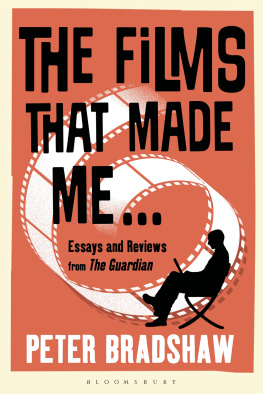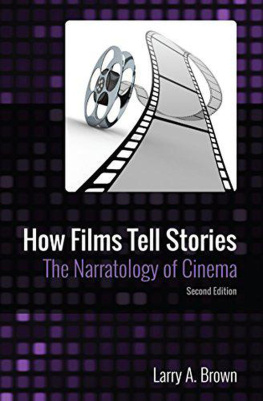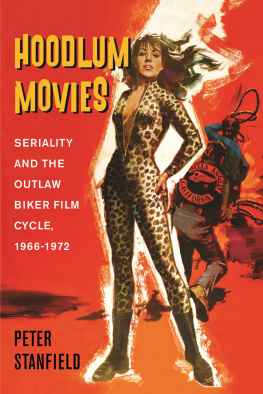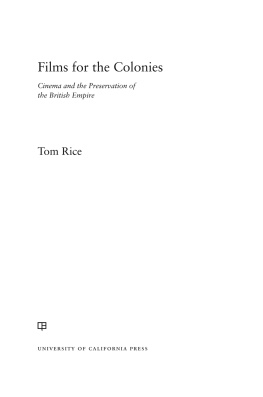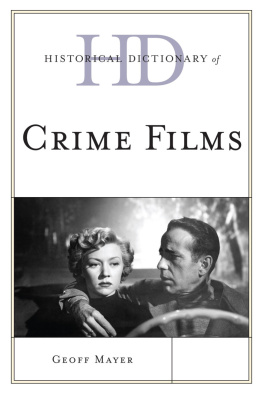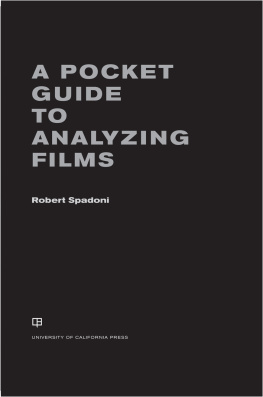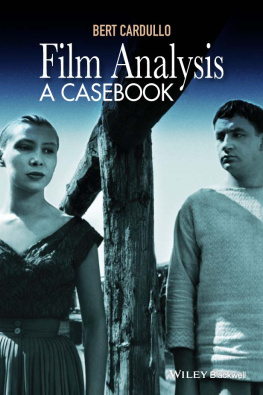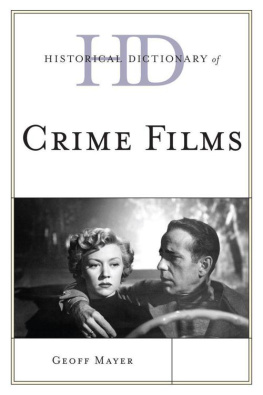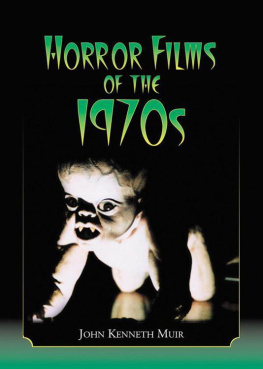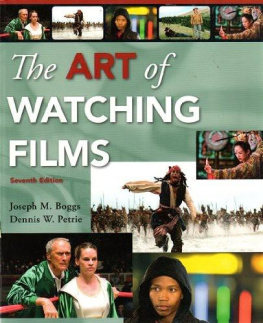
For Caroline

Contents
Like a pizza delivery driver who travels everywhere by moped, or a volcanologist who keeps turning the central heating up, Im a film critic who loves going to the cinema.
Since I have been doing this job at The Guardian , solicitous questions about whether I can possibly still enjoy it (answer: yes, increasingly so) have morphed into a general need to discuss the crisis in the activity of film criticism itself. And, yes, there is a crisis. We need to return to the lost age of critical heroism when giants like Pauline Kael or Andr Bazin intervened spectacularly in the culture of cinema and when the careers of film-makers like Truffaut and Godard could evolve naturally from their former existences as critics, cinephiles and evangelists for humanitys newest artform.
The status of cinema criticism changed: it became professionalised and normalised. And then, shortly after the time I started, it was declared to be on the verge of extinction. The web changed everything, and the old saying everyones a critic was now pretty much literally true. In terms of cultural discourse, the democratic explosion of comment applied most obviously to film criticism. Not everybody read new fiction. Not everybody went to art exhibitions. Not everybody went to the theatre or the opera and in age of web-surfing not even everybody watched TV quite the way they used to. But everybody went to the movies. Everybody had an opinion. Everybody could let rip.
Literary critics, music critics, architecture critics, were not considered to be in trouble in quite the same way. But professional movie critics were thought to be like brontosauruses up to their armpits in warm lakes, complacently cropping their leaves from low-hanging branches as per usual, dimly sensing a faint whooshing and fizzing overhead, and after briefly looking up, getting hit in the face by a gigantic meteor.
Reviewers were getting laid off left and right we didnt realise it, but this was actually a symptom and forerunner of a greater crisis within newspaper publishing and throughout the noughties I was forever being invited onto panels at film festivals, in a spirit of schadenfreude -concern, to discuss the decline and fall of film criticism.
But something strange happened. It didnt decline and it didnt fall. The web invigorated criticism, not merely with the new voices that it allowed to be heard, but with the new opportunities and a whole new grammar of interaction with the reader. Social media and YouTube offered new ways of performing as a critic. And then, a few years ago, something else happened, in the wake of the #OscarsSoWhite and #MeToo campaigns: once dismissed for being absurdly powerless, critics were attacked for being too powerful a white male cartel that was rigging the cinema system against women and people of colour. There is something in it, of course. Criticism has to be opened up. I myself am white and male, but I also understand the duty and responsibility of all critics, all writers, to reach beyond their provincial backgrounds, to identify, to sympathise, to understand the movies as an international artform, unimprisoned by gender.
It has all made critics realise that they themselves are eligible for criticism. I used to hear film-makers complain that critics were dubiously qualified to judge their work and then hear critics respond, with the thin-skinned resentment we traditionally show on the occasions we are criticised, that on the contrary we are highly qualified, thank you very much. Now I hear critics erupt with vexation when they read disobliging below-the-line comments on their work, and snarl that these people, whoever they are, are not qualified to judge their writing.
One of the great and still under-discussed issues of what we used to call Web 2.0 is the fact that it has put an end to the one-party state of media and publishing: a one-party state that came into power in 1475, with Gutenbergs printing press, and which began to lose its grip in 1989, with Tim Berners-Lees world wide web. Before the web, if you wanted to publish an opinion you had to apply for a job in journalism and work your way up, and even then you couldnt publish an opinion about journalism because that wasnt the way it worked.
The internet changed all this, and film criticism was one of its biggest victim-beneficiaries: shaken up, shaken loose. The unspoken contract between reader and critic used to be that one would read a review, and then see the film. Or not. Now people see the film, and then read the review often on their phones or tablets on the way out of the theatre, and then start vehemently commenting. And they can go directly to the critic: their interest in that critic is not a subsidiary part of some brand loyalty to the larger paper or publication in the way it used to be. On the web, the critics identity floats free. But like everyone else in the troubled world, he or she depends on the business model of the paper that is underwriting everything.
Film critics are giving it away for free. Film-makers, on the other hand, charge for their wares and vigorously crack down on people stealing movies while of course resenting the way new media has conferred quasi-legitimacy on pirating.
And what about cinema itself? Some fads have come and gone. 3D enjoyed a revival ten years ago with the release of James Camerons sci-fi fantasy Avatar , but has now vanished again. I was never reconciled to 3D, finding it uncomfortable and believing that we, the viewers, are the true third dimension. Also, in 2012, Peter Jackson experimented with High Frame Rate in his movie The Hobbit , shooting at forty-eight frames per second, rather than the traditional twenty-four. It made the images sharper and smoother, but just like video. The infinitesimal motion blur of twenty-four fps is what makes images richer, denser and cinematic. The forty-eight fps innovation was quietly dropped. Yet despite those disappearing innovations, all movie critics must realise how very young their chosen artform is. It is still in its infancy, still rooted in literature and theatre, still rooted in the idea that cinema is very largely created by adapting novels or short stories or plays (but not poems or paintings, for reasons never discussed). There may be some radical, unguessed-at generic change in cinema far ahead of us, arriving like the novel long after Shakespeares day. Peter Greenaway says that we are still living in a pre-cinematic age.
Crisis is the dominant mode of discussion when it comes to talking about movie criticism, and perhaps assuming the existence of crisis is the only way of justifying the subject in the first place. And yet there is something in that crisis which is exciting and liberating. Critics have written about the way cinema and new cinema releases in the traditional sense have been abolished. Its not a question of a film getting shown in cinemas and getting reviewed in print, and finally becoming widely available. Films can be released in the Video-On-Demand format, or through Netflix, they can be consumed online, legally or not, through Vimeo or YouTube. The existence of old and inaccessible movies so recently hardly more than a rumour has now been reaffirmed by the retail explosion in DVD editions. This is the opportunity for a new and diversified cinephilia. Some pundits find something offensive in the existence of cinema which is getting experienced or not on tablets or smartphones. And yes, it isnt the same as the pure sensual thrill of the full-sized cinema. But wait. Where did you first see the great movies, where did you first see cinema itself? On TV, of course, probably with many vulgar and crassly timed commercial breaks. And TV is where people continue to find movies. And that small screen didnt poison your appreciation of cinema.

